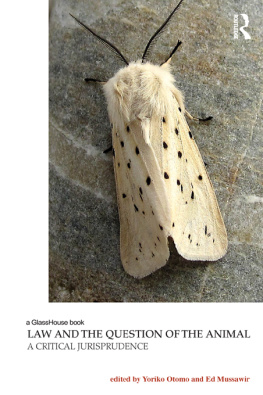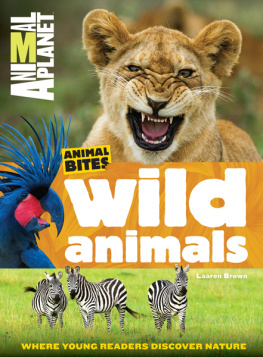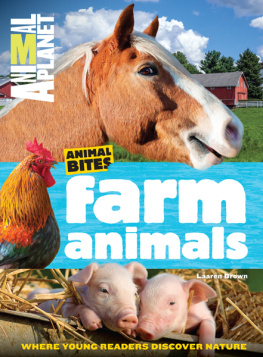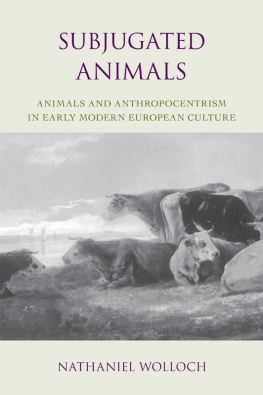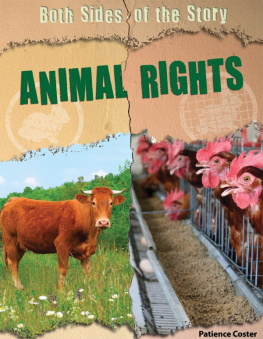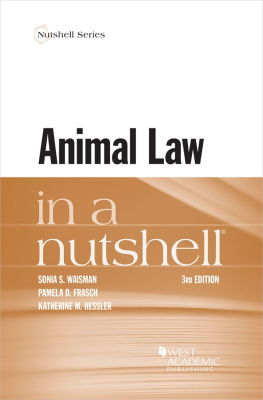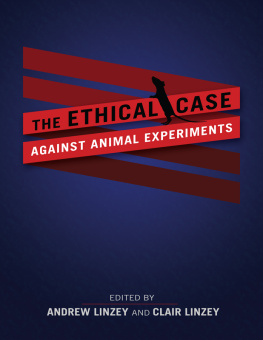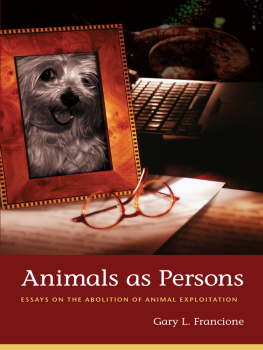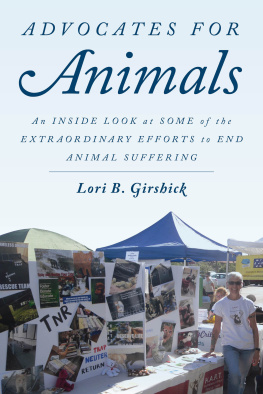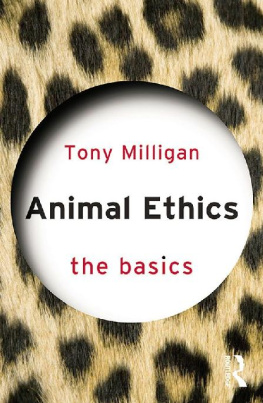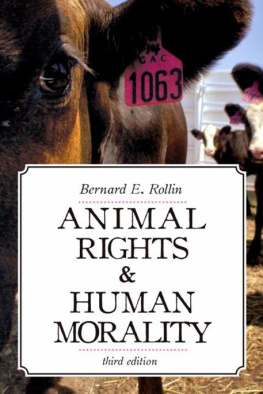
Law and the Question of the Animal
This book addresses the problem of animal life in terms that go beyond the usual extension of liberal rights to animals. The discourse of animal rights is one that increasingly occupies the political, ethical and intellectual terrain of modern society. But, although the question of the status of animals holds an important place within a range of civil, political and technological disciplines, the issue of rights in relation to animals usually rehearses the familiar perspectives of legal, moral and humanist philosophy. Animal law is fast becoming a topic of significant contemporary interest and discussion. This burgeoning interest has not, however, been matched by renewed inquiry into the jurisprudential frames and methods for the treatment of animals in law, nor the philosophical issue of the human and the animal that lies at laws foundation. Responding to this interest, Law and the Question of the Animal: A Critical Jurisprudence brings together leading and emerging critical legal theorists to address the question of animality in relation to laws foundations, practices and traditions of thought. In so doing, it engages a surprisingly underdeveloped aspect of the moral philosophies of animal rights, namely their juridical register and existence. How does animal law alter our juridical image of personality or personhood? How do the technologies of law intersect with the technologies that invent, create and manage animal life? And how might the ethical, ontological and ceremonial relation between humans and animals be linked to a common source or experience of law?
Yoriko Otomo is a Lecturer in Law at the School of Oriental and African Studies, University of London. Her research looks at the intersection between International Law and Animal Law, in particular at the ways in which processes of colonization and globalization have influenced jurisprudence relating to animals.
Ed Mussawir is a Lecturer at Griffith Law School, Brisbane and the author of Jurisdiction in Deleuze: The Expression and Representation of Law. His research has focused on the reception of the work of Gilles Deleuze in jurisprudence and the theories of persons, possession, procedure and judgment.
Law, justice and ecology
Series editor: Anna Grear, The University of Waikato, New Zealand
The relationship between law, justice and ecology is an area of considerable intellectual complexity and richness both for scholarship and for theory-informed practice in the twenty-first century. Nothing, in a sense, could be more urgent than sustained intellectual reflection on, and political engagement with, the range of interlinked themes that mesh, unpredictably, in the relationships between law, justice and ecology. This book series is designed to provide a platform (and provocation) for scholars from a diverse set of backgrounds, disciplines and commitments to reflect upon this important and challenging intellectual terrain. The titles published in this series will reflect the inter-disciplinary background of scholars working on the themes underlying the relationships between law, justice and ecology.
Titles in the series
Forthcoming:
Earth Jurisprudence
Private property and the environment
Peter Burdon
Wild Law, In Practice
Edited by Michelle Maloney and Peter Burdon
Available
Law and Ecology
New environmental foundations
Andreas Philippopoulos-Mihalopoulos
Law and the Question of the Animal
A critical jurisprudence
Edited by Yoriko Otomo and Ed Mussawir

First published 2013
by Routledge
2 Park Square, Milton Park, Abingdon, Oxon OX14 4RN
Simultaneously published in the USA and Canada
by Routledge
711 Third Avenue, New York, NY 10017
A GlassHouse Book
Routledge is an imprint of the Taylor & Francis Group, an informa business
2013 Yoriko Otomo and Ed Mussawir
The right of Yoriko Otomo and Ed Mussawir to be identified as editors of this work, and the individual chapter authors for their individual material, has been asserted in accordance with sections 77 and 78 of the Copyright, Designs and Patents Act 1988.
All rights reserved. No part of this book may be reprinted or reproduced or utilised in any form or by any electronic, mechanical, or other means, now known or hereafter invented, including photocopying and recording, or in any information storage or retrieval system, without permission in writing from the publishers.
Trademark notice: Product or corporate names may be trademarks or registered trademarks, and are used only for identification and explanation without intent to infringe.
British Library Cataloguing in Publication Data
A catalogue record for this book is available from the British Library
Library of Congress Cataloging in Publication Data
Law and the question of the animal : a critical jurisprudence / edited by Yoriko Otomo and Edward Mussawir.
p. cm.
1. Animal rightsPhilosophy. 2. Animal welfareLaw and legislation. 3. Animal rightsMoral and ethical aspects. 4. AnimalsLaw and legislation. I. Otomo, Yoriko.
II. Mussawir, Edward.
K3620.L39 2013
345.0287dc23
2012028696
ISBN: 978-0-415-68350-0 (hbk)
ISBN: 978-0-415-66336-6 (pbk)
ISBN: 978-0-203-07136-6 (ebk)
Typeset in Garamond
by Wearset Ltd, Boldon, Tyne and Wear
Contents
Notes on contributors
Cima Barbato Bevilaqua is Associate Professor at the Department of Anthropology, University of Parana (Brazil). Her research interests focus on the anthropology of law and bureaucracy, including legal-theoretical debates and court decisions concerning non-human beings.
Piyel Haldar has been at Birkbeck since 1994 where he has taught legal history. His main area of research is in areas of jurisdictions that inhabit and destabilize the underside of mordern legality.
Cressida Limon is a Research Fellow at the Melbourne Law School, University of Melbourne, where she recently completed her PhD on narratives of invention and reproduction in laws encounter with biotechnologies. Her research focuses on critical feminist legal studies and the naturecultures of law.
Ed Mussawir is a Lecturer at Griffith Law School Brisbane and the author of Jurisdiction in Deleuze: The Expression and Representation of Law. His research has focused on the reception of the work of Gilles Deleuze in jurisprudence and the theories of persons, possession, procedure and judgment.
Yoriko Otomo is a Lecturer in Law at the School of Oriental and African Studies, University of London. Her research looks at the intersection between International Law and Animal Law, in particular at the ways in which processes of colonization and globalization have influenced jurisprudence relating to animals.
Connal Parsley teaches in legal theory and legal ethics at the University of Melbourne, where he is currently a doctoral candidate in the Melbourne Law School. His thesis is a jurisprudential re-reading of the work of Giorgio Agamben, which considers in particular the history of the legal person as a species of image. He is also preparing the English translation of Roberto Espositos Categorie dellimpolitico.
Andreas Philippopoulos-Mihalopoulos is Professor of Law and Theory at the University of Westminster and Director of The Westminster International Law and Theory Centre. His research is interdisciplinary and includes phenomenology, autopoiesis, law and literature, geography, art, corporeality, environmental studies. His edited volumes
Next page
